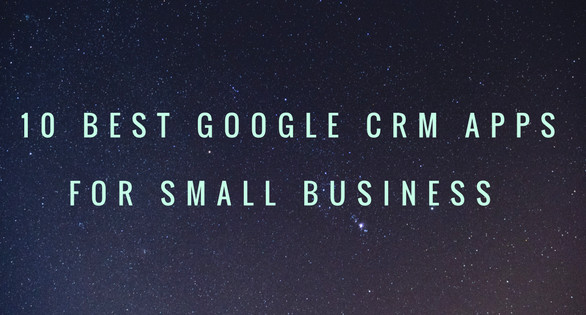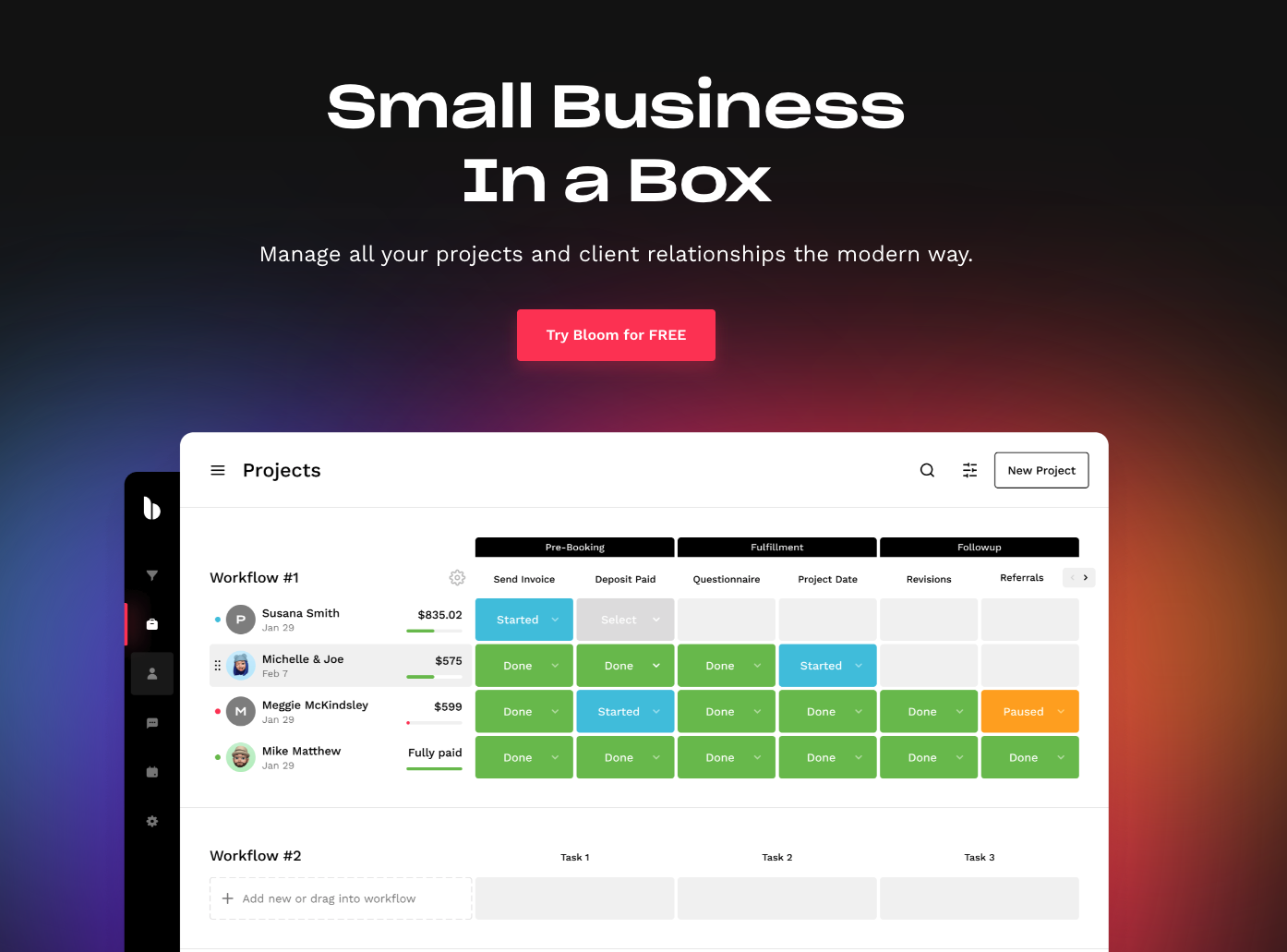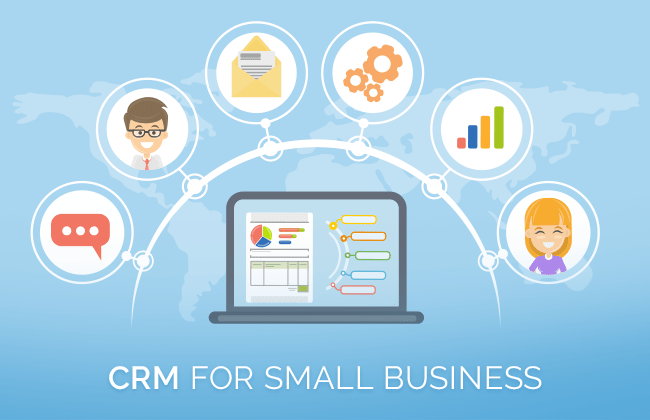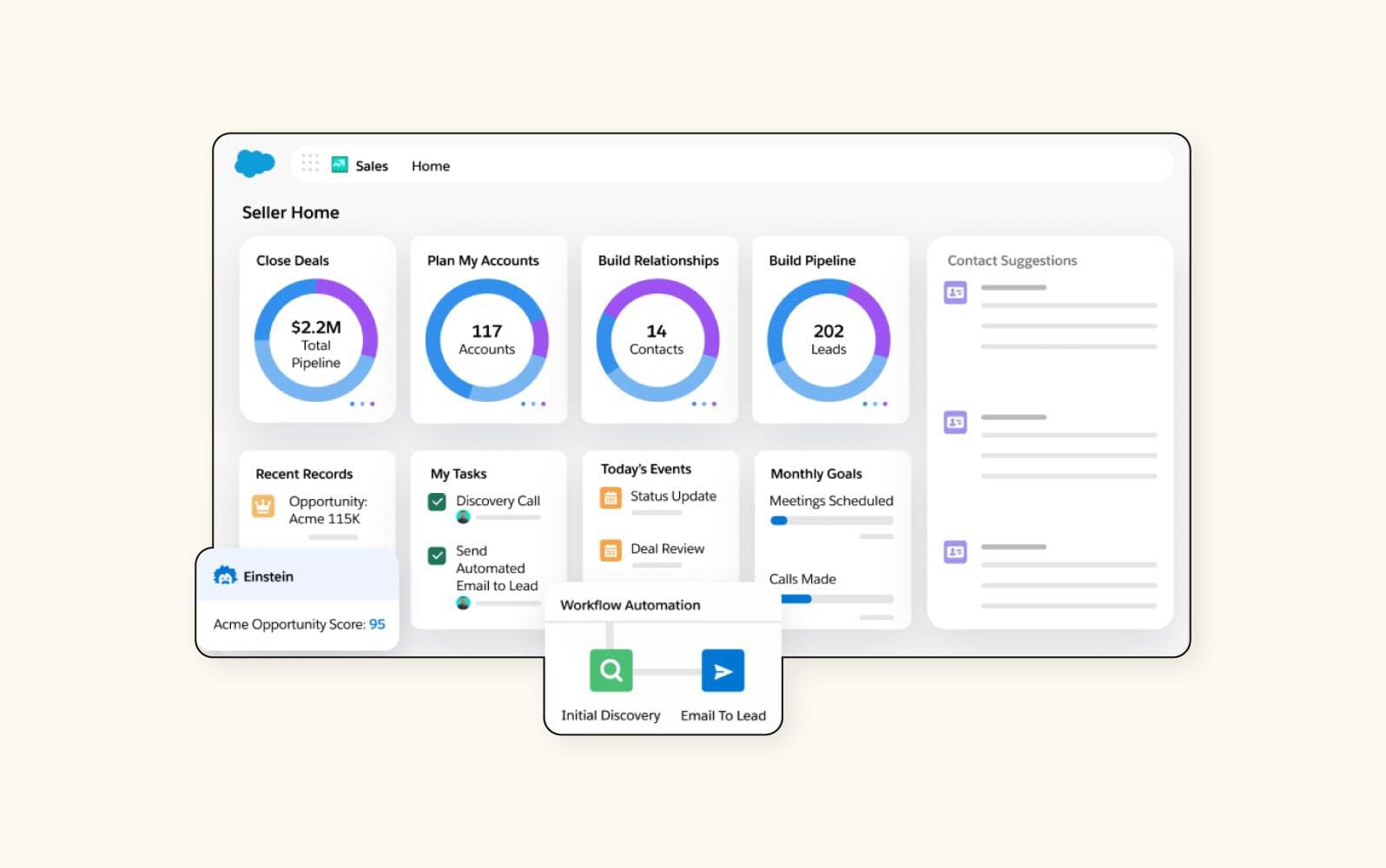Unlocking Growth: The Ultimate CRM Guide for Small Business Owners

The Heart of Your Business: Why a CRM is Essential for Small Entrepreneurs
Starting and running a small business is a rollercoaster. One minute you’re celebrating a new client, the next you’re scrambling to keep up with emails, appointments, and follow-ups. It’s easy to feel overwhelmed, and that’s where a Customer Relationship Management (CRM) system comes in. Think of it as the central nervous system of your business, connecting all your customer interactions and helping you stay organized, efficient, and, ultimately, successful. Without a CRM, you’re essentially flying blind, relying on memory and scattered spreadsheets to manage your most valuable asset: your customers.
This comprehensive guide will dive deep into the world of CRMs, specifically tailored for small entrepreneurs. We’ll explore the benefits, features, and, most importantly, the best CRM options available to help you take your business to the next level. Forget the complex, enterprise-level systems – we’re focusing on user-friendly, affordable solutions that can grow with your business.
What is a CRM and Why Do You Need One?
At its core, a CRM is a software system that helps you manage your interactions with current and potential customers. It’s more than just a contact list; it’s a centralized hub for all customer-related information. This includes:
- Contact Information: Names, phone numbers, email addresses, and physical addresses.
- Interaction History: Records of all communications, including emails, phone calls, meetings, and social media interactions.
- Sales Pipeline: Visual representation of your sales process, from lead generation to closing deals.
- Customer Segmentation: Ability to categorize customers based on demographics, purchase history, and other criteria.
- Reporting and Analytics: Tools to track key performance indicators (KPIs) and measure the effectiveness of your sales and marketing efforts.
So, why is a CRM so crucial for small businesses? Here are some key benefits:
Improved Customer Relationships
A CRM allows you to personalize your interactions with customers. By having all their information at your fingertips, you can tailor your communication to their specific needs and preferences. This leads to stronger relationships, increased customer loyalty, and higher customer lifetime value.
Increased Sales and Revenue
By streamlining your sales process, a CRM helps you close more deals. It allows you to track leads, manage your sales pipeline, and automate follow-up tasks. This frees up your time to focus on what matters most: selling.
Enhanced Efficiency and Productivity
A CRM automates many of the tedious tasks associated with customer management, such as data entry, email marketing, and appointment scheduling. This saves you time and allows you to focus on more strategic initiatives.
Better Data Analysis and Decision-Making
CRMs provide valuable insights into your customer behavior and sales performance. This data can be used to make informed decisions about your sales, marketing, and customer service strategies.
Centralized Information
No more searching through multiple spreadsheets, emails, and notebooks. A CRM centralizes all your customer information in one place, making it easy for your entire team to access and share information.
Key Features to Look for in a CRM
Not all CRMs are created equal. Choosing the right one for your small business depends on your specific needs and budget. However, there are several key features that you should look for:
Contact Management
This is the foundation of any CRM. It should allow you to easily store, organize, and access all your customer contact information. Look for features like:
- Custom Fields: The ability to add custom fields to capture unique information about your customers.
- Import and Export: Easy import and export of contact data from spreadsheets and other sources.
- Duplicate Detection: Automatic detection and merging of duplicate contacts.
Lead Management
Lead management features help you track and nurture potential customers. Look for features like:
- Lead Capture Forms: Customizable forms to capture leads from your website and other sources.
- Lead Scoring: Assigning points to leads based on their engagement and behavior.
- Lead Segmentation: Grouping leads based on their demographics, interests, and stage in the sales process.
Sales Automation
Sales automation features help you streamline your sales process and free up your time. Look for features like:
- Email Automation: Automated email sequences for lead nurturing, follow-up, and customer onboarding.
- Task Automation: Automated reminders and task assignments.
- Workflow Automation: Automated workflows to streamline common sales processes.
Sales Pipeline Management
A visual representation of your sales pipeline helps you track the progress of your deals. Look for features like:
- Drag-and-Drop Interface: Easy to move deals between different stages of your sales pipeline.
- Deal Tracking: Ability to track the value, probability, and estimated close date of each deal.
- Reporting and Analytics: Reporting on your sales pipeline performance.
Reporting and Analytics
Reporting and analytics features provide insights into your sales and marketing performance. Look for features like:
- Customizable Dashboards: Customizable dashboards to track your key performance indicators (KPIs).
- Sales Reports: Reports on your sales performance, including revenue, sales volume, and conversion rates.
- Marketing Reports: Reports on your marketing campaigns, including lead generation, website traffic, and email marketing performance.
Integration
The ability to integrate with other tools you use is crucial for a seamless workflow. Look for integrations with:
- Email Marketing Platforms: Such as Mailchimp, Constant Contact, and ActiveCampaign.
- Social Media Platforms: Such as Facebook, Twitter, and LinkedIn.
- Accounting Software: Such as QuickBooks and Xero.
- Website Builders: Such as WordPress and Wix.
Mobile Accessibility
In today’s mobile world, it’s essential to have access to your CRM on the go. Look for a CRM with a mobile app that allows you to access your data, manage your contacts, and track your sales pipeline from your smartphone or tablet.
Ease of Use
A CRM is only valuable if you and your team actually use it. Look for a CRM that is user-friendly and easy to learn. Consider the following:
- Intuitive Interface: The interface should be clean, simple, and easy to navigate.
- Training and Support: The CRM provider should offer comprehensive training and support resources.
- Customization Options: The ability to customize the CRM to fit your specific needs.
Top CRM Solutions for Small Entrepreneurs
Now that you understand the benefits and key features, let’s dive into some of the best CRM solutions for small entrepreneurs. We’ll consider factors like price, features, ease of use, and customer support.
1. HubSpot CRM
Overview: HubSpot CRM is a popular choice for small businesses due to its free plan and comprehensive features. It’s known for its user-friendly interface and powerful marketing automation capabilities.
Key Features:
- Free Forever Plan: Offers a generous free plan with unlimited users and contacts.
- Contact Management: Stores contact information, interactions, and deals.
- Sales Pipeline Management: Visual sales pipeline with drag-and-drop functionality.
- Email Marketing: Basic email marketing features.
- Marketing Automation: Limited marketing automation features in the free plan.
- Integration: Integrates with a wide range of tools, including Gmail, Outlook, and social media platforms.
Pros:
- Free Plan: Excellent value for small businesses.
- User-Friendly Interface: Easy to learn and use.
- Marketing Automation: Powerful marketing automation features.
- Comprehensive Features: Offers a wide range of features, including contact management, sales pipeline management, and reporting.
Cons:
- Limited Features in Free Plan: Some advanced features require a paid subscription.
- Can Be Overwhelming: The sheer number of features can be overwhelming for some users.
Pricing: Free plan, paid plans start at $45 per month.
Ideal for: Businesses looking for a free CRM with powerful marketing automation capabilities.
2. Zoho CRM
Overview: Zoho CRM is a versatile and affordable CRM solution that offers a wide range of features. It’s a good choice for businesses that need a customizable and scalable CRM.
Key Features:
- Contact Management: Stores contact information, interactions, and deals.
- Sales Pipeline Management: Visual sales pipeline with drag-and-drop functionality.
- Workflow Automation: Automate tasks and processes.
- Email Marketing: Integrated email marketing features.
- Customization: Highly customizable to fit your specific needs.
- Integration: Integrates with a wide range of tools, including Google Workspace, Microsoft Office 365, and social media platforms.
Pros:
- Affordable: Offers a range of affordable plans.
- Customizable: Highly customizable to fit your specific needs.
- Workflow Automation: Powerful workflow automation features.
- Integration: Integrates with a wide range of tools.
Cons:
- Can Be Complex: The extensive features can be complex for some users.
- Customer Support: Customer support can be slow at times.
Pricing: Free plan for up to 3 users, paid plans start at $14 per user per month.
Ideal for: Businesses looking for a customizable and affordable CRM solution with powerful automation capabilities.
3. Freshsales
Overview: Freshsales is a sales-focused CRM that’s designed to help you close deals faster. It’s known for its user-friendly interface and powerful sales automation features.
Key Features:
- Contact Management: Stores contact information, interactions, and deals.
- Sales Pipeline Management: Visual sales pipeline with drag-and-drop functionality.
- Lead Scoring: Assign points to leads based on their engagement.
- Email Tracking: Track email opens and clicks.
- Phone Integration: Make and receive calls directly from the CRM.
- Reporting and Analytics: Comprehensive reporting and analytics features.
Pros:
- Sales-Focused: Designed to help you close deals faster.
- User-Friendly Interface: Easy to learn and use.
- Powerful Sales Automation: Automate your sales processes.
- Phone Integration: Make and receive calls directly from the CRM.
Cons:
- Less Marketing Automation: Not as strong on marketing automation as some other CRMs.
- Limited Free Plan: The free plan is limited in features.
Pricing: Free plan, paid plans start at $15 per user per month.
Ideal for: Sales teams looking for a sales-focused CRM with powerful automation features.
4. Pipedrive
Overview: Pipedrive is a sales-focused CRM that’s designed to help you manage your sales pipeline and close deals. It’s known for its intuitive interface and visual sales pipeline.
Key Features:
- Contact Management: Stores contact information, interactions, and deals.
- Visual Sales Pipeline: Drag-and-drop sales pipeline.
- Deal Tracking: Track the progress of your deals.
- Email Integration: Integrates with your email.
- Reporting and Analytics: Reporting on your sales pipeline performance.
- Mobile App: Mobile app for on-the-go access.
Pros:
- Intuitive Interface: Easy to learn and use.
- Visual Sales Pipeline: Easy to visualize your sales pipeline.
- Deal Tracking: Track the progress of your deals.
- Mobile App: Access your CRM on the go.
Cons:
- Limited Features: Not as many features as some other CRMs.
- Focus on Sales: Primarily focused on sales, with limited marketing features.
Pricing: Paid plans start at $14.90 per user per month.
Ideal for: Sales teams looking for a simple and intuitive CRM to manage their sales pipeline.
5. Agile CRM
Overview: Agile CRM is a comprehensive CRM solution that offers a wide range of features at an affordable price. It’s a good choice for businesses that need a CRM with sales, marketing, and customer service capabilities.
Key Features:
- Contact Management: Stores contact information, interactions, and deals.
- Sales Pipeline Management: Visual sales pipeline with drag-and-drop functionality.
- Marketing Automation: Email marketing, lead scoring, and landing pages.
- Customer Service: Help desk features.
- Integration: Integrates with a wide range of tools.
- Mobile App: Mobile app for on-the-go access.
Pros:
- All-in-One Solution: Offers sales, marketing, and customer service features.
- Affordable: Offers a range of affordable plans.
- Marketing Automation: Powerful marketing automation features.
- Mobile App: Access your CRM on the go.
Cons:
- Can Be Complex: The extensive features can be complex for some users.
- User Interface: The interface might not be as polished as some other CRMs.
Pricing: Free plan for up to 10 users, paid plans start at $9.99 per user per month.
Ideal for: Businesses looking for an all-in-one CRM solution with sales, marketing, and customer service features.
Choosing the Right CRM: A Step-by-Step Guide
Choosing the right CRM for your small business is a significant decision. Here’s a step-by-step guide to help you make the right choice:
1. Define Your Needs
Before you start looking at CRM solutions, take some time to define your needs. Consider the following questions:
- What are your goals? What do you want to achieve with a CRM? (e.g., increase sales, improve customer relationships, streamline processes)
- What are your pain points? What challenges are you currently facing in managing your customer interactions?
- What features do you need? Make a list of the essential features you need, such as contact management, sales pipeline management, and email marketing.
- What is your budget? How much are you willing to spend on a CRM?
- Who will be using the CRM? How many users will need access to the CRM?
2. Research CRM Options
Once you’ve defined your needs, start researching CRM options. Read reviews, compare features, and consider the following factors:
- Ease of Use: Is the CRM user-friendly and easy to learn?
- Features: Does the CRM offer the features you need?
- Integration: Does the CRM integrate with the other tools you use?
- Pricing: Is the CRM affordable?
- Customer Support: Does the CRM provider offer good customer support?
3. Get a Free Trial
Most CRM providers offer free trials. Take advantage of these trials to test out the CRM and see if it’s a good fit for your business. During the trial, try out the features you need and see how easy it is to use.
4. Consider Your Team’s Needs
Involve your team in the decision-making process. Ask them for their input and get their feedback on the different CRM options. Make sure the CRM you choose meets the needs of your entire team.
5. Implement and Train
Once you’ve chosen a CRM, it’s time to implement it. This involves:
- Importing your data: Transferring your existing customer data into the CRM.
- Customizing the CRM: Configuring the CRM to fit your specific needs.
- Training your team: Providing training to your team on how to use the CRM.
6. Ongoing Evaluation
After you’ve implemented the CRM, it’s important to regularly evaluate its performance. Are you achieving your goals? Are your team members using the CRM effectively? Make adjustments as needed to ensure that the CRM is meeting your needs.
Beyond the Basics: Advanced CRM Strategies for Small Businesses
Once you’ve mastered the basics of using a CRM, you can explore more advanced strategies to maximize its benefits:
1. Data Segmentation and Personalization
Don’t treat all your customers the same. Use your CRM data to segment your customers based on demographics, purchase history, behavior, and other criteria. Then, personalize your communication and offers to each segment. This can significantly improve your engagement rates and conversion rates.
2. Sales Pipeline Optimization
Regularly analyze your sales pipeline to identify bottlenecks and areas for improvement. Track your conversion rates at each stage of the pipeline and identify where you’re losing deals. Use this information to refine your sales process and improve your sales performance.
3. Marketing Automation
Leverage the marketing automation features of your CRM to automate repetitive tasks and nurture leads. Set up automated email sequences to engage leads, send targeted offers, and provide valuable information. This can save you time and improve your lead conversion rates.
4. Customer Service Integration
Integrate your CRM with your customer service tools to provide a seamless customer experience. This allows your customer service representatives to access customer information and history, personalize their interactions, and resolve issues more efficiently.
5. Mobile CRM Usage
Encourage your team to use the mobile app of your CRM. This allows them to access customer information, manage their sales pipeline, and stay connected with customers on the go. This can improve their productivity and responsiveness.
6. Integration with Other Tools
Integrate your CRM with other tools you use, such as your email marketing platform, social media platforms, and accounting software. This creates a seamless workflow and eliminates the need to manually transfer data between different systems.
7. Regular Data Cleansing
Keep your CRM data clean and accurate. Regularly review your data and remove any duplicate entries, outdated information, or incorrect data. This ensures that your data is reliable and that you’re making informed decisions.
The Future of CRM for Small Businesses
The CRM landscape is constantly evolving, with new technologies and features emerging all the time. Here are some trends to watch out for:
1. Artificial Intelligence (AI)
AI is being used to automate tasks, provide insights, and personalize customer interactions. Expect to see more AI-powered features in CRMs, such as:
- Predictive Analytics: Predicting customer behavior and identifying potential opportunities.
- Chatbots: Providing instant customer support and answering frequently asked questions.
- Automated Data Entry: Automatically capturing and organizing customer data.
2. Enhanced Personalization
Customers expect personalized experiences. CRMs will continue to evolve to provide more sophisticated personalization features, such as:
- Personalized Content Recommendations: Recommending products and services based on customer preferences.
- Dynamic Content: Displaying different content to different customers based on their behavior.
- Personalized Email Marketing: Sending highly targeted email campaigns.
3. Mobile-First Approach
Mobile accessibility will continue to be a priority. CRMs will become even more mobile-friendly, with:
- Improved Mobile Apps: More robust and feature-rich mobile apps.
- Voice Assistants: Integration with voice assistants, such as Siri and Alexa.
4. Increased Automation
Automation will continue to be a key focus. CRMs will offer more automation features, such as:
- Automated Workflows: Automating complex sales and marketing processes.
- Automated Reporting: Generating automated reports and dashboards.
5. Integration and Interoperability
CRMs will become more integrated with other tools and systems, such as:
- Open APIs: Allowing for seamless integration with a wider range of tools.
- Data Synchronization: Automatically synchronizing data between different systems.
Conclusion: Embrace the Power of CRM
In the competitive world of small business, a CRM is no longer a luxury; it’s a necessity. By implementing the right CRM and leveraging its features effectively, you can:
- Build stronger customer relationships.
- Increase sales and revenue.
- Improve efficiency and productivity.
- Make better data-driven decisions.
Take the time to research the different CRM options, define your needs, and choose the solution that’s right for your business. By embracing the power of CRM, you’ll be well-positioned to achieve sustainable growth and success.





